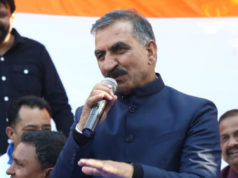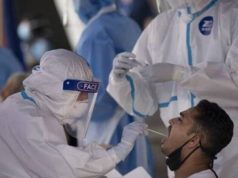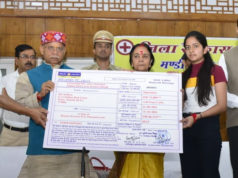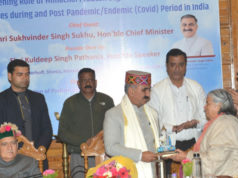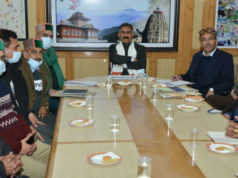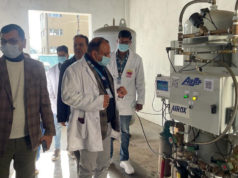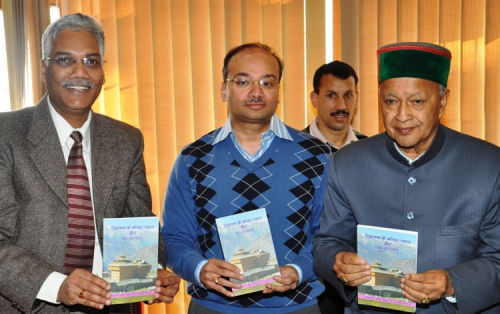Shimla: Besides killing and infecting thousands of people in the state, the coronavirus pandemic has also put up an additional burden on the bio-medical waste disposal infrastructure in the state. The generation of COVID-19 bio-medical waste which is required to be disposed of as per the guidelines prescribed by the Central Pollution Control Board has increased significantly.
At present, generation of approximately 2.63 MT per day of COVID-19 waste is being reported by the different institutions, besides an average generation of 1.46 MT per day of bio-medical waste, which is being disposed of through these common facilities.
Since May 2020, about 385 MT of COVID-19 waste have been generated and disposed-off in the State through common as well as captive disposal facilities.
The state also has enhanced its bio-medical waste incineration capacity from 2.4 MT per day to 6.4 MT per day by authorizing one new Common Bio-medical Waste Treatment and Disposal Facility (CBWTF) established by M/S Enviro Engineer at Pandoga, District Una.
Till now there were two CBWTFs operating at Sandli, District Solan and Dugiari, District Kangra catering to the requirements of various health care institutions in the state. Augmentation of bio-medical waste disposal infrastructure during the time of COID-19 pandemic would be very useful to ensure scientific disposal of bio-medical waste as well as COVID-19 waste.
To ensure the disposal of bio-medical waste and COVID-19 waste in the state, periodic reviews of the stakeholder departments are being held by the Chief Secretary Anil Khachi from time to time.
The State has an inventory of 8,921 health care institutions, which falls under the ambit of the Biomedical Waste (Management & Handling) Rules, 2016 and about 90 percent of the waste generated by these health care institutions are disposed through common facilities and approximately 10 percent through captive treatment and disposal facility (deep burial).
It is mandatory for every institution involved in handling, treatment, and disposal of waste during testing/diagnosis/treatment/quarantine of COVID-19 patients to report waste generation and disposal details on the Centralized COVID-19 tracking Application, which is being monitored by the State Board as well as CPCB on daily basis. Further, to ensure the operational compliance of these CBWTFs, online continuous emission monitoring systems have been installed by these facilities, which transmit its emissions monitoring data on a real-time basis with the servers of the State/Central regulatory agencies.


